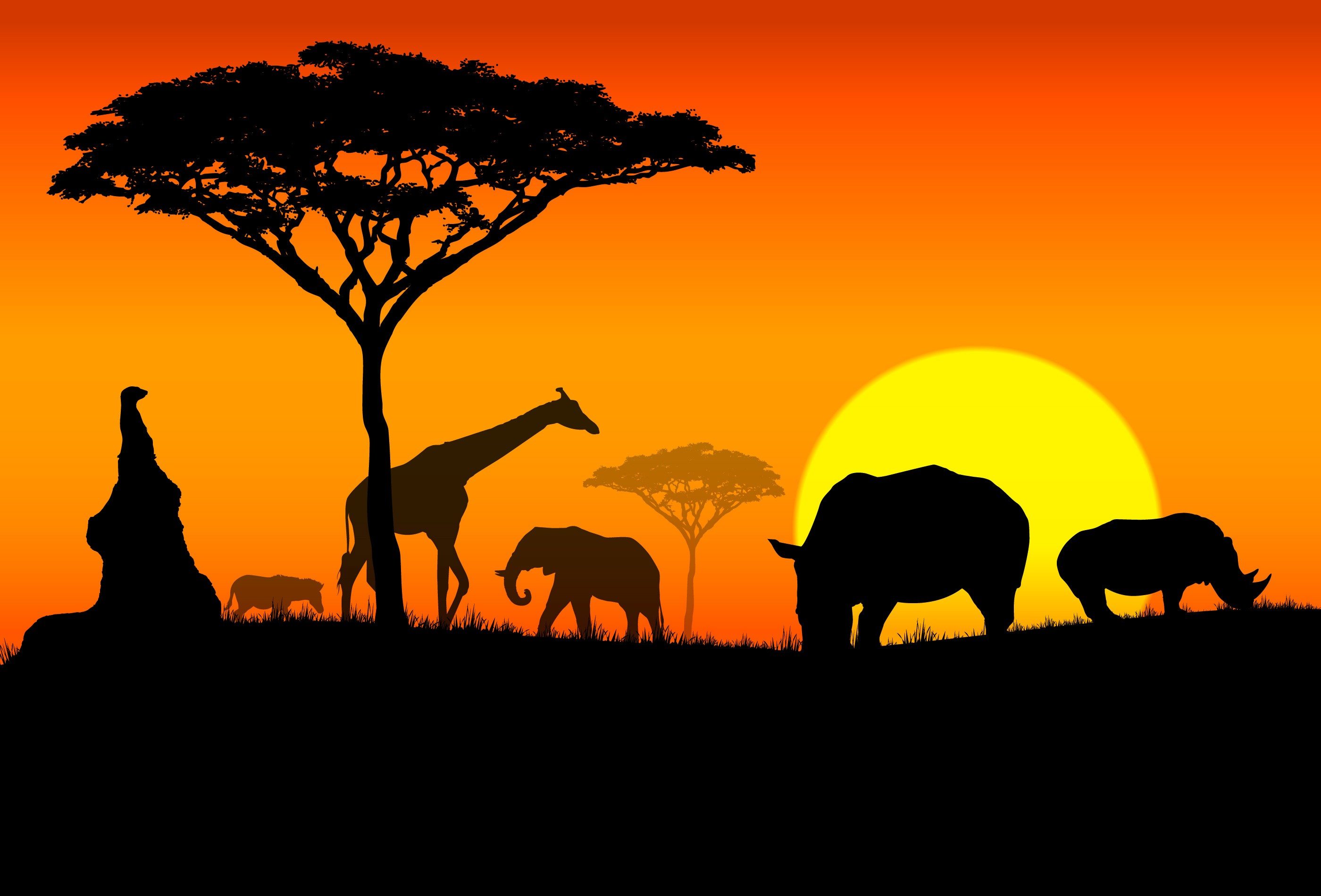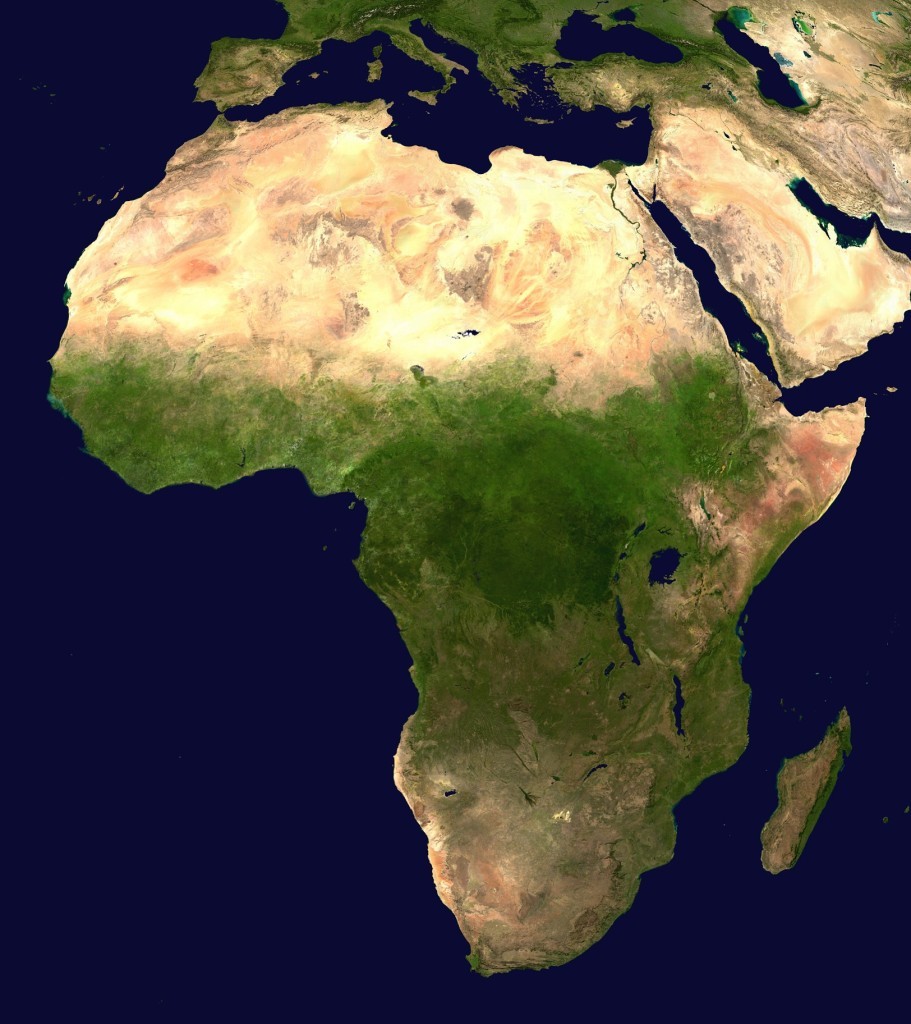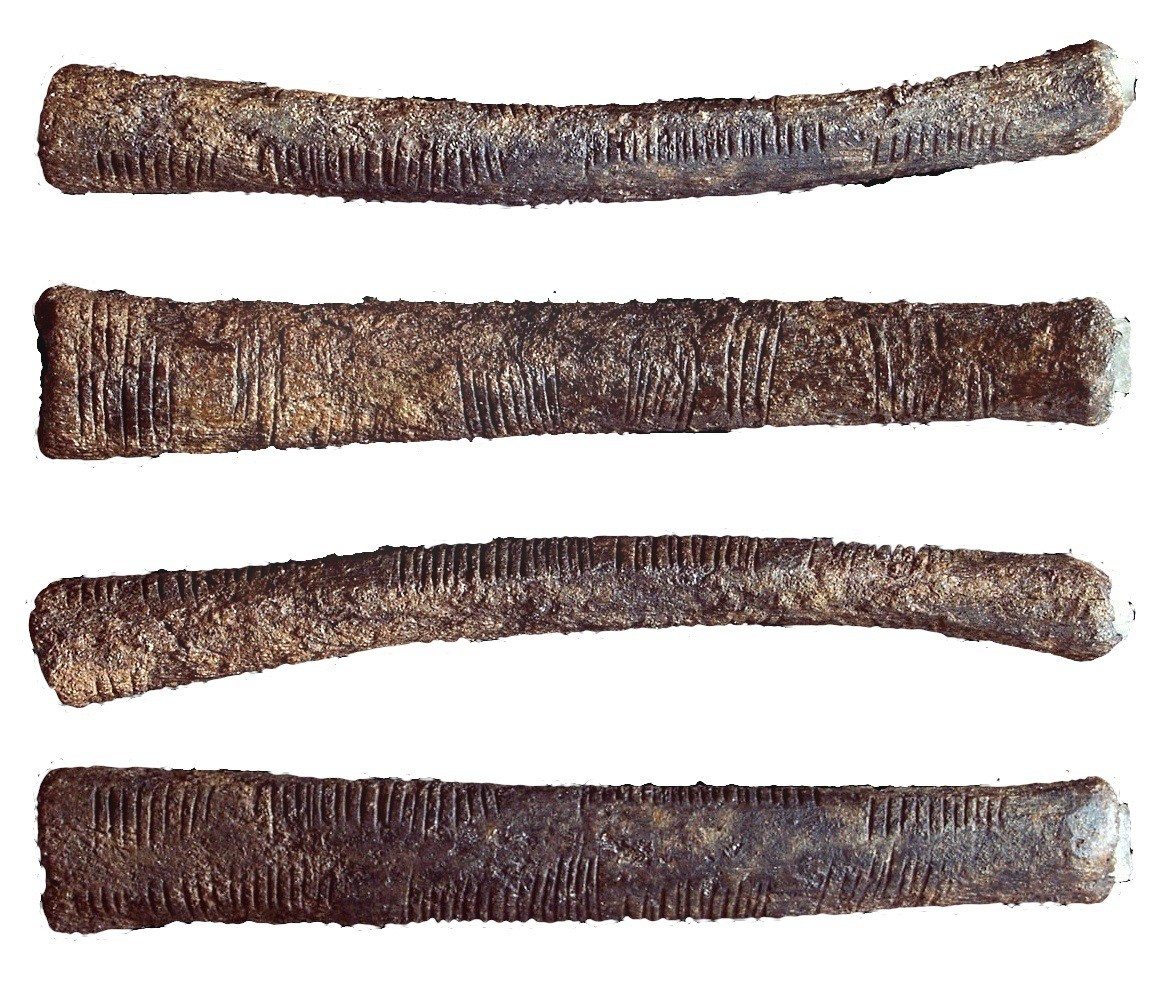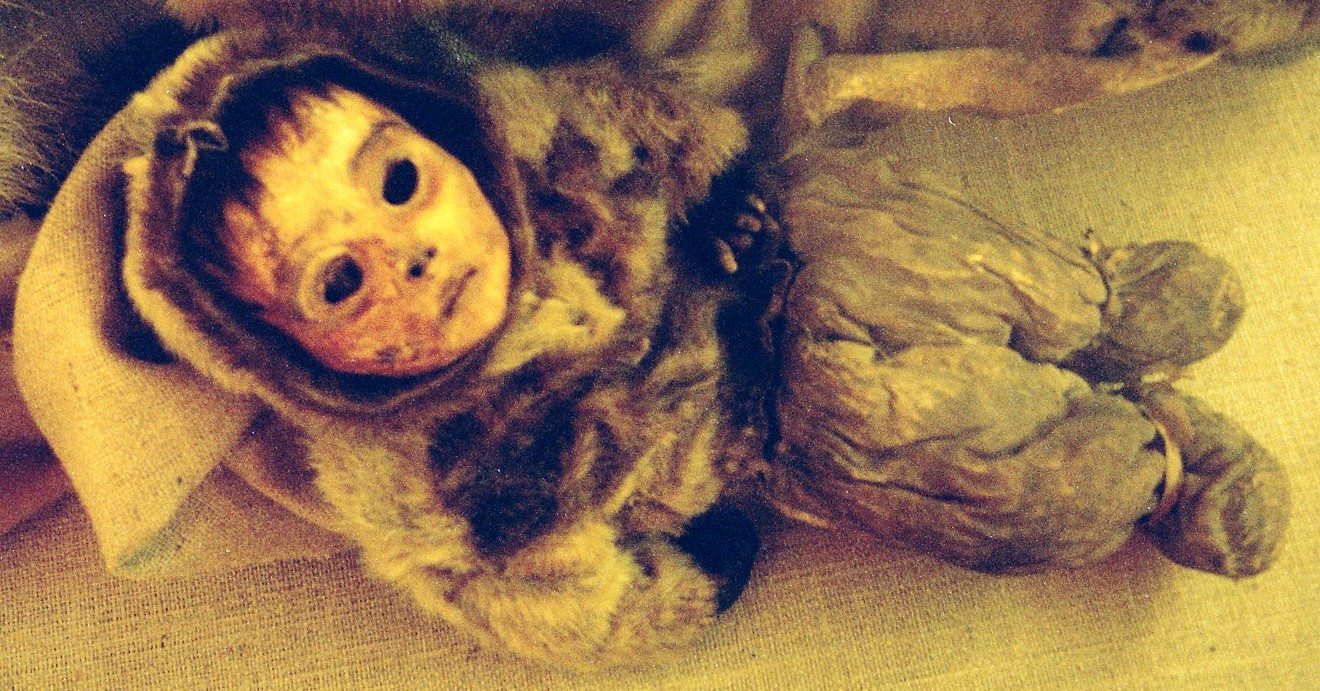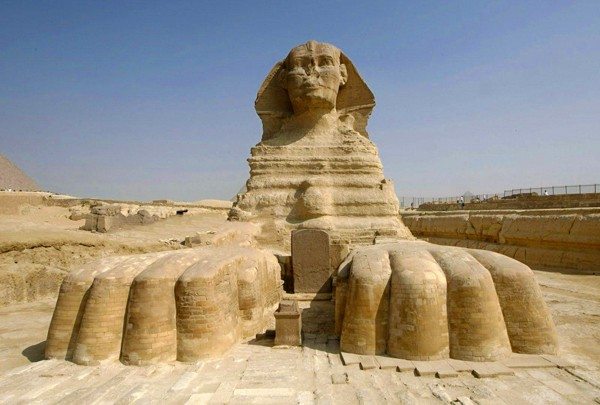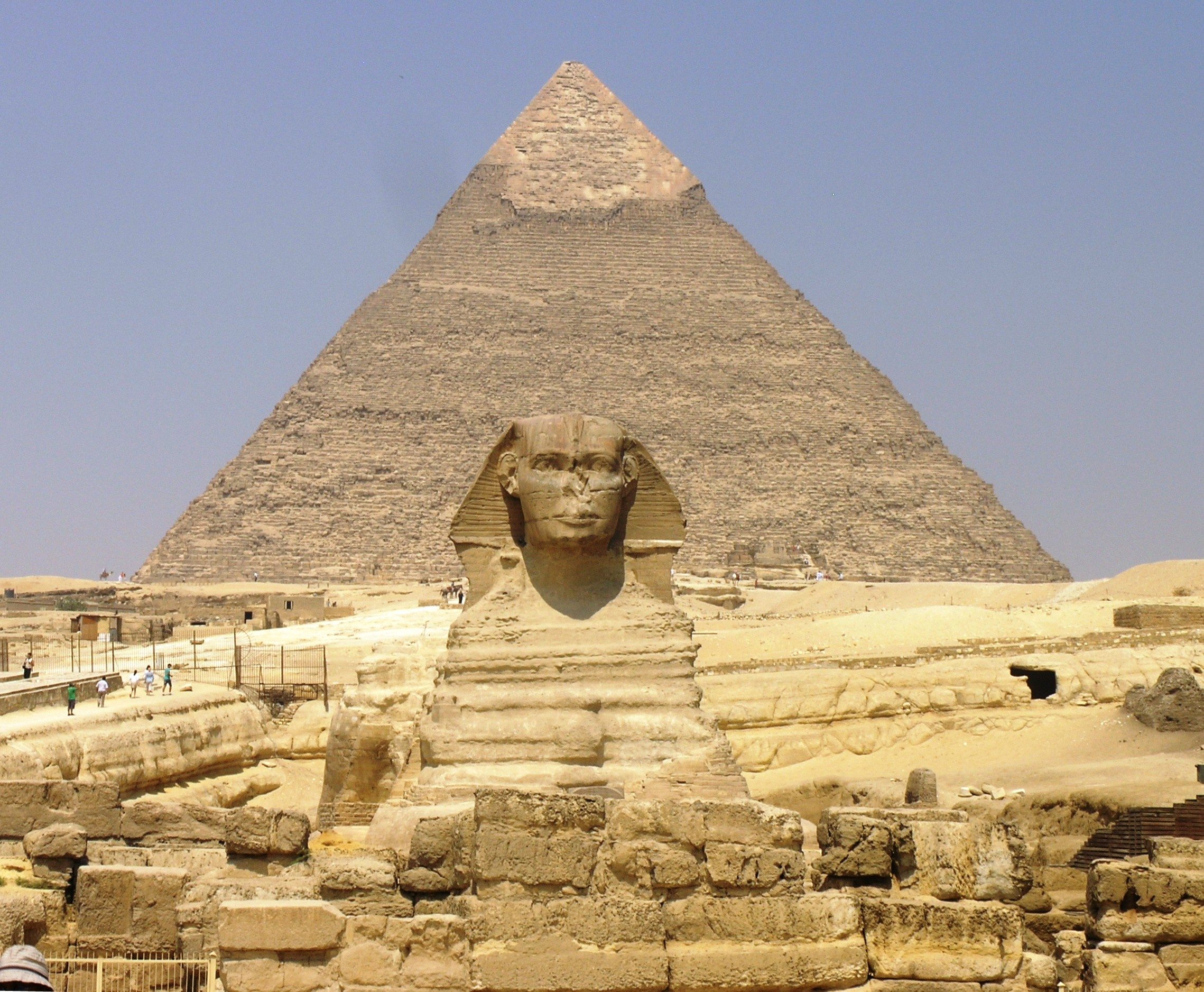Africa is one of the 7 continents of the world. It is the second largest and the second most populous continent in the world with Nigeria as the largest country by population. Africa covers 6% of the total surface area of the earth and 20% of its total land area while Algeria is its largest country by area. As of 2016, there were 1.2 billion people in Africa; that is one-seventh and 16% of the entire world’s population.
According to the United Nations, there are 54 fully recognized sovereign states or countries in Africa today and this explains why the continent can boast of diverse ethnic groups, cultures, and a very high linguistic diversity, although there are uniting forces among these countries. In a bid to foster a strong bond among African countries, African Union was established with its headquarters in Addis Ababa, Ethiopia.
What Africa is Known For?
Africa, like every other continent that has grown through the process of time, is known around the world for many reasons. Popular for the ancient Egyptian Pyramids and its huge cultural heritage, the continent is also known to be the origin of civilization and written language dating back to more than 4000 years. Africa is also known for being one of the hottest places on earth. Apart from these, below are some other amazing things for which Africa is known.
See Also: East African Countries
World’s Second Largest Continent
Africa is the second largest continent in the world covering almost 12 million sq. miles (approximately 31 million sq. km) and what this means is that Africa could hold the land space occupied by India, China, New Zealand, Argentina, Europe and the continental parts of United States, with more spaces left to spare!
The Sahara Desert
This is the world’s hottest desert which occupies 25% of the total area of Africa- an area greater in size than the entire United States. The desert got its name from the dialectal Arabic word for “desert”, ‘ṣaḥra’, which by literal translation means ‘the greatest desert’. It is usually cited as the world’s largest desert but going by the definition of the term ‘desert’, both Antarctica and the Arctic qualify as deserts, and since they are both larger than the Sahara, that automatically makes Sahara desert the third largest in the world.
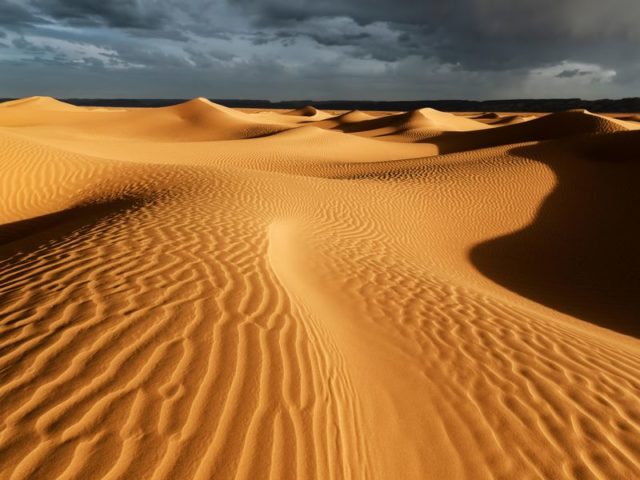
Home To The Longest and Deepest Rivers In The World
The Nile river, located in northeastern Africa, is the longest river in the world, measuring 4,132 miles. It runs through eleven African countries including Tanzania, Kenya, Uganda, Ethiopia, Rwanda, Burundi, South Sudan, the Democratic Republic of the Congo, Eritrea, Republic of the Sudan and Egypt.
Africa is also known to be the home of the Congo River which is the deepest river in the world, reaching more than 750 feet in depth. It is also the ninth longest river in the world and runs through the second largest rainforest in the world. The volume of water discharged by the Congo river is second to the Amazon River.
The Second Congo War
Just a little more than one year after the First Congo War, the second lap of the war kicked off in the Democratic Republic of the Congo, on 2 August 1998 and lasted until 18 July 2003. The Second Congo War holds a record of being the deadliest war in the world since World War II. Though not something Africa is proud of, this brutal war which involved nine African countries and about twenty armed groups, claimed the lives of 5.4 million people- the second-highest number of casualties after the Second World War.
Pangaea
Africa was once joined to the other continents in a massive continent called Pangaea. Over millions of years, this huge continent broke apart shaping the world landscape as we know it today in what has been referred to the continental drift.
Languages
One in four of the world’s languages are spoken only in Africa and Arabic is the most widely spoken language in Africa. A total of 170 million individuals mainly living in the northern parts of Africa speak Arabic. This is outside over 2000 other languages spoken in Africa.
Read More: More Interesting Africa Facts
Egyptian Pyramids
In Africa, Egypt is the most attractive country for tourism and part of what drives this is the Egyptian pyramids. It is worthy of note, however, that Sudan has over 200 pyramids which is much more than the number found in Egypt.
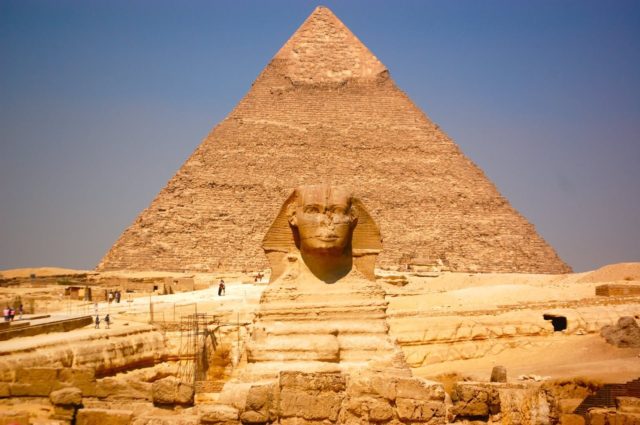
Origin Of World Civilization
World Civilization started in Africa and the most ancient civilization known to man was the state of the Pharaohs which started in ancient Egypt about 3300 BC and ended in 343 BC.
Origin Of The Human Race
Following the excavation of the oldest skeletal remains of anatomically modern humans (or homo sapiens) known to the world, at sites in East Africa, it has been said that the human race has its origin in Africa. This human remains which is approximately 200,000-years-old were found at Omo in Ethiopia.
The Victoria Falls
Described as one of the seven natural wonders of the world, the Victoria Falls located on the Zambia/Zimbabwe border is the largest waterfall in the world based on its height (108 meters) and width (1,708 meters). It was first seen by in 1855 by David Livingstone, a famous Scottish explorer and missionary, while he was trying to maneuver a dugout canoe through swirling rapids. The falls got its name from Livingstone who named it after Queen Victoria of Britain. However, the local till date, still call it Mosi-oa-Tunya – “Smoke That Thunders” and both names are officially recognized by the World Heritage List.
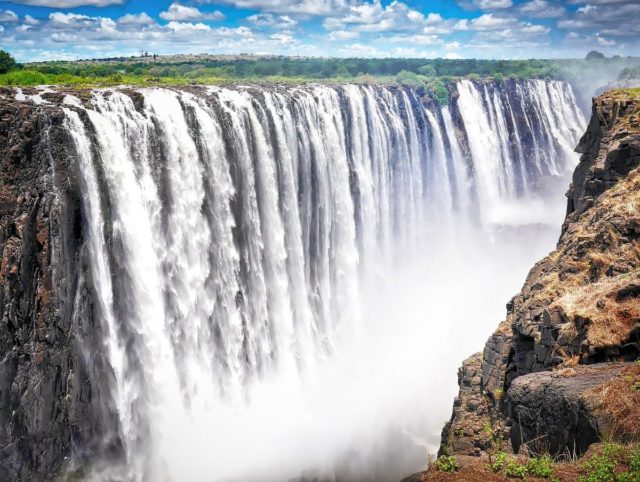
Victoria Lake
This is the largest lake in Africa, the ninth largest continental lake and the second largest freshwater lake in the world. located in East Africa, Victoria Lake is the source of the famous River Nile. It was discovered in 1858 by John Speke who named the river after the then Queen of England- Queen Victoria.
Poorest Continent In The World
A February 2017 ranking of the world’s poorest countries by Global Finance Magazine shows that African countries again were dominant. The ranking, done based on data from the International Monetary Fund, ranked the world’s countries according to their gross domestic product (GDP) based on purchasing power parity (PPP) per capita.
In Africa, a lot of people survive on a thousand dollars or less (per person) per year in GDP. This is due to political instability, poverty, genocide, many years of war, lack of natural resources, among other things.
Wild Life
The largest remaining populations of wild animals like lions, elephants, buffalos, rhinoceros, cheetah, hyena, leopard and hundreds of other species are found in Africa.
Illiteracy
Africa has the largest number of countries with 60% of illiterate people, according to World literacy statistics. Nearly 40% of adults in Africa are illiterate, and two-thirds of them are women.
Other Pretty Cool Facts About Africa You Should Know About
Almost every country in Africa (including South Africa) is in some stage of development, and this implies that social amenities standards are not yet equal with those of the developed countries. Healthcare facilities do not always have enough operating staff and medications may not be readily available especially in remote rural areas; but in spite of all these things that may tend to downgrade Africa, it is still a great continent.
Africa is a home for lions, elephants, cheetahs, penguins and other rare animals which bring nature to our very embrace. Africans are full of life, proving the long-held belief; ‘you know you are alive only when you live among lions’. Africa is always regarded as a blessed and endowed continent in terms of skin colour, natural endowments, resources and the likes. It has made such huge achievements and also produced great men and women throughout the history. Despite all these amazing things that Africa has to offer and the many great people it has produced, many Africans still don’t know some of the great things about Africa. Glance below to see great things about Africa you actually need to know.
Human Race is Believed to Have Originated from Africa
Africa is the second most populated continent in the world. Supporting this fact is the belief that the human race is from Africa. As part of the many proofs, the oldest known skeletal remains of anatomic modern humans (or Homo sapiens) were dug out at sites in East Africa. This equally proves the belief by most scientists that study ancient humans, that Africa is the oldest inhabited territory on earth. Human remains discovered at Omo in Ethiopia were found to be over 195,000 years old, the oldest known in the world.
Skeletons of Early Humans were Found in Africa
Skeletons of early humans have been found in Africa that date back between 4 and 5 million years. The oldest known ancestral type of humanity is thought to have been the Australopithecus ramidus, who lived at least 4.4 million years ago.
Mining
Africans were the first to embark on mining 43,000 years ago. In 1964 a hematite mine was found in Swaziland at Bomvu Ridge in the Ngwenya mountain range. Ultimately 300,000 artifacts were discovered including thousands of stone-made mining tools. Adrian Boshier, one of the archaeologists on the site, dated the mine to about 43,200 years old.
Africans Invented Arithmetic
Africans introduced basic mathematics 25,000 years ago. The Ishango bone is a tool handle carved with a deep recess which was found in the Ishango region of Zaïre (now called Congo) near Lake Edward. The bone tool was initially thought to have been over 8,000 years old, but a more current dating gave the dates as 25,000 years old.There are 3 rows of notches on the Ishango bone. The first Row shows three notches carved close to six, four designed close to eight, ten carved close to two fives and finally a seven. The 3 and 6, 4 and 8, and 10 and 5, represent the method of adding.The second Row shows eleven notches cut close to twenty-one notches, and nineteen notches cut close to nine notches. This stands for 10 + 1, 20 + 1, 20 – 1 and 10 – 1. The last Row shows eleven notches, thirteen notches, seventeen notches and nineteen notches. 11, 13, 17 and 19 that are the prime numbers between 10 and 20. They were obviously used for mathematical purposes.
First To Cultivate
Africans planted crops 12,000 years ago, the first known advances in agriculture. Professor Fred Wendorf, found out that people in Egypt’s Western Desert planted crops of barley, capers, chick-peas, dates, legumes, lentils and wheat. The ancient tools they used were also discovered including grindstone, milling stones, cutting blades, hide scrapers, engraving burners, mortars and pestles.
Mummies Are From Africa
Africans preserved the bodies of the dead 9,000 years ago. The body of a preserved child was discovered under the Uan Muhuggiag rock shelter in south-western Libya. The child was buried in the posture characteristic of a fetus and was preserved using a very sophisticated method that must have taken hundreds of years to develop. The method came into existence well before the earliest mummies known in Ancient Egypt by at least 1,000 years. The actual date of the techniques is controversial but the preserved dead bodies may date from 7438 (±220) BC.
The Great Sphinx Of Giza
Africans created the world’s first colossal sculpture 7,000 or more years ago. The Great Sphinx of Giza was designed using the head of a human mixed with the body of a lion. Little wonder they regard Africans as lions. The big question the monument raised was: How old is it? In October 1991 Professor Robert Schoch, a geologist from Boston University, said that the Sphinx was designed between 5000 BC and 7000 BC, dates that he considered relatively low for the sake of caution.
The Great Pyramid of Giza
The first extraordinary Pyramid of Giza which is one of the most remarkable buildings in history, was roughly 481 feet tall – equal to a 40-storey building is in Africa. It is made up of 2.3 million blocks of limestone and granite, some weighing 100 tons.
Indigenous Word for Gun
Some part of Southern Africans have indigenous words for ‘gun’ before the era of colonization which scientists have generally been less concerned to research on or explain. This evidently proves the fact that guns may not necessarily be linked to colonial masters.
Making of Steel
In 1978, evidence showed that East Africans were making steel for more over 1,500 years. Assistant Professor of Anthropology Peter Schmidt and Professor of Engineering Donald H. Avery have discovered that as early as 2,000 years ago, Africans living on the western shores of Lake Victoria had created carbon steel in preheated forced draft furnaces, a method that was technically more sophisticated than any created in Europe until the mid-nineteenth century.
